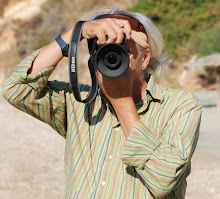Nowadays, the term
discrimination is most often seen as something wrong, negative, chauvinist ... you name it. It's a pity that this has happened, because discrimination is - in fact - one of the most important forms of thinking and intuiting. To be able to discriminate is not only important in perceiving the world more or less correctly, it is actually needed for our very survival.
One is, for example, well advised to discriminate between eating food that is nutritious and healthy - and stuff that poses as food while it actually consists of garbage, plastic and poisons. One also does well to discriminate between vampire-like people who zap one's energy by being both selfish and stupid, and others who aid one's development, honestly share opinions and insights, offer respect and friendship; perhaps even
agape of some kind.

However, intelligent discrimination does need nurturing, training, education ... it is almost as difficult as it is for the young girl in this photograph to climb those stairs in the equatorial heat; carrying water to her home in the village on top.
With the following quote, I like to provide an example of how difficult discrimination can be, but also how important for our perception of what is called
reality.
Try to make up your mind whether or not the following resembles fiction rather than reality, is misguided conspiracy fantasy or honest assessment of a situation by a daring mind.
"(He) had had too many dealings with the idiots on Capitol Hill to feel anything but contempt for them. Those whose arteries weren't already sufficiently hardened to cut off oxygen to their brains were so venal they never managed to get their snouts out the river of graft that year after year granted them certain return to their privileged sinecures."
And let me remind you that it says
Capitol Hill only because the author of this is an American - if another name suits you better, please do exchange it when thinking about this.
Photograph: Village on Nias (Indonesia). Copyright
© CCRCC
Quote: Eric Lustbader. Black Blade. London, 1997 (page 613)
 In Copenhagen, the so-called leaders of the World (193 countries were represented) have shown once more the simple truth in an old song. I've been unable to find out who wrote this, but it has been performed by Van Morrison, Elvis Costello, Vaya Con Dios and others. The refrain in question is
In Copenhagen, the so-called leaders of the World (193 countries were represented) have shown once more the simple truth in an old song. I've been unable to find out who wrote this, but it has been performed by Van Morrison, Elvis Costello, Vaya Con Dios and others. The refrain in question is 







